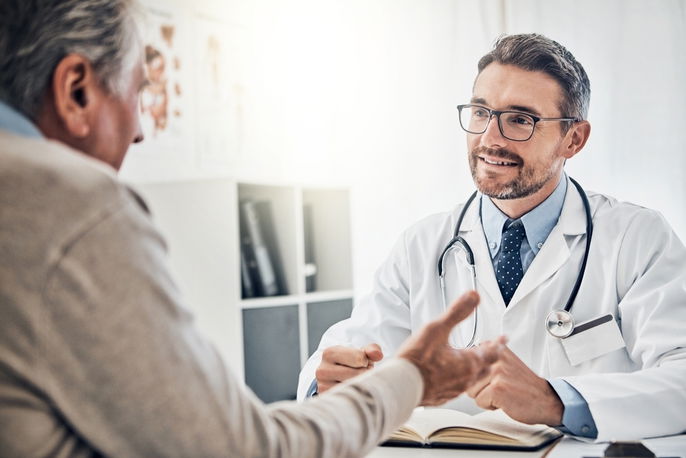E. coli treatment may involve a combination of antibiotics, rest, and hydration. More severe cases may even require hospitalization.
E. coli is a bacteria that can invade the gastrointestinal and cause symptoms like abdominal pain and diarrhea, or it can enter the urinary system and lead to UTI symptoms, like a pain and burning when urinating.
Also recommended: E. Coli: Symptoms (w/ Online Checker) & How to Treat tuasaude.com/en/e-coliIt is important that E. coli treatment is started promptly, as soon as symptoms are identified and a diagnosis is confirmed. This will allow for a quick recovery and a low risk for reinfections.

List of treatment options
E. coli treatment that your family doctor, gastroenterologist or urologist may advise includes:
1. Increased hydration
Increased hydration is essential for the treatment for E. coli as it helps to prevent complications from dehydration that may be caused by excessive diarrhea.
You are advised to drink plenty of water and/or electrolyte solutions, as advised by your doctor.
Increasing your fluid intake is also important for treating UTIs, as it helps to promote urine production and flush the urinary tract to eliminate E. coli bacteria.
Also recommended: Home Remedies for UTI: 10 Teas, Juices & Natural Treatments tuasaude.com/en/home-remedies-for-uti2. Rest
Rest is also advised for treating E. coli as it helps to promote a quicker recovery and boost immunity to help fight the infection.
This recommendation is especially important in cases of gastroenteritis, as patients may feel weaker after several bouts of diarrhea.
3. Antibiotics for E. Coli
Antibiotics for E. coli may be prescribed by your doctor to treat UTIs caused by this bacteria.
The main antibiotics that are prescribed for UTIs from E. coli are:
- Phosphonic acid derivatives, such as fosfomycin;
- Nitrofurans, such as nitrofurantoin;
- Sulfonamides, such as sulfamethoxazole + trimethoprim;
- Quinolones, such as levofloxacin or ciprofloxacin;
- Penicillins, such as amoxicillin or ampicillin;
- Cephalosporins, such as cephalexin;
- Aminoglycosides, such as gentamicin.
The antibiotic should be taken for the duration indicated by the doctor. Its use should not be interrupted, even if your symptoms improve.
E. coli infections that cause gastroenteritis do not usually require antibiotic treatment, unless the symptoms are severe.
In these cases, the doctor may prescribe antibiotics such as rifaximin, azithromycin or ciprofloxacin.
4. Analgesics
Analgesics, like acetaminophen, may be prescribed to help reduce fever caused by an E. coli infection.
Medications like phenazopyridine may also be beneficial when treating a UTI. These can help to relieve bladder and urethral spasms, which may contribute to the sensation of pain or burning when urinating.
5. Antispasmodics
Antispasmodic medications like scopolamine may be prescribed by the doctor for adults to relieve intestinal or urinary tract cramps.
These medications should only be used if prescribed by the doctor and are not recommended for children, pregnant or breastfeeding women.
Using medications to stop diarrhea is contraindicated, as it prevents the body from getting rid of the E. coli bacteria naturally, leading to more severe symptoms and complications
6. Hospitalization
Hospitalization for the treatment of E. coli may be recommended by the doctor in severe E. coli infections that lead to dehydration, especially if the person is unable to tolerate oral fluids.
Hospitalization may also be required for complicated UTIs that lead to pyelonephritis, for example.
In these cases, E. coli treatment may also involve IV fluids and antibiotics.
Patients who develop complications from E. coli, like hemolytic uremic syndrome, may also require blood transfusions or dialysis.
Natural treatment
Natural E. coli treatment can be used to complement the treatment plan outlined by your doctor. It can help to reduce symptoms and the risk for complications.
To treat a UTI naturally, you can consume cranberry juice, which interacts with E. coli bacteria and makes it difficult for it to adhere to the urinary fract. Check-out the herbs for a UTI that you can use to prepare teas.
Cases of gastroenteritis caused by E. coli infections can often be treated with a light, easy-to-digest diet. You should opt for foods like white bread, white rice, white pasta, fish and peeled fruits. the case of gastrointestinal infection, it is recommended to eat a light and easily digestible diet, such as white bread, rice and pasta, chicken, fish and peeled fruits. Read more about what you should eat if you have diarrhea.






























